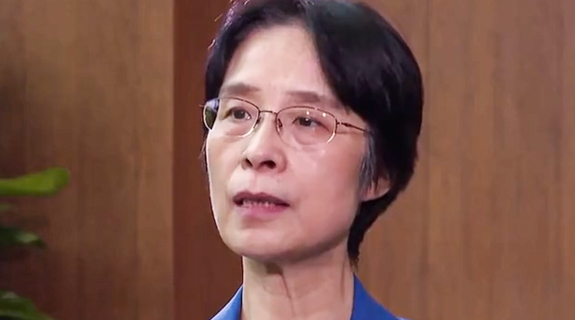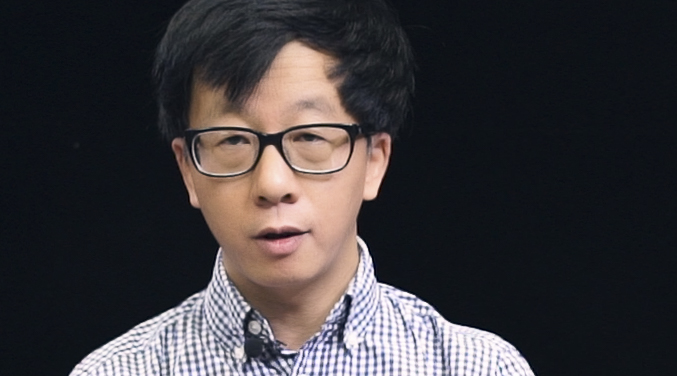first Australian ministerial visit to China in three years signals shifting PRC foreign policy
A bellwether for PRC foreign relations for some years, Sino-Australian links were only recently deemed beyond redemption by Beijing. For Australia, Trade disruption still impacts a massive sweep from coal and lobsters through barley and wine to official warnings against studying at its universities.
Meanwhile, in Canberra a new PRC ambassador, Xiao Qian 肖千, has spent 2022 mending fences with business, backpedalling a list of 14 grievances presented to Australian media in November 2020. Xiao's predecessor Cheng Jingye 成敬业 had framed the list as unilateral conditions for the then-conservative government to unblock Australian exports and unfreeze official relations. Canberra had failed to blink, and Albanese, the incoming Labor PM, stood fast. Indeed high on the agenda for his administration's first ministerial visit to the PRC was hostage diplomacy (affecting detained Australians Cheng Lei and Yang Hengjun), unlikely to impress Beijing.
The bilateral hiatus had attracted worldwide attention, moving the dial on global sentiment regarding Beijing's good faith.
finding the right time
When the 50th anniversary of diplomatic ties came around in December 2022, Beijing had good reason to welcome the recently appointed Australian Foreign Minister, Penny Wong. Her counterpart Wang Yi's 王毅 reference to 'difficulties', from which both sides must learn, clearly wound back the 14 grievances presented earlier. Wong promptly occupied a major foreign policy beachhead, yielding little beyond expected niceties.
The context certainly favoured a breakthrough. Multiple crises besiege the PRC economy: COVID in both its global and domestic downstream effects; Russian weakness revealed in its invasion of Ukraine; real estate and land finance downturns; climate change; looming demographic decline; loss of trade momentum… all made worse by Xi’s 2022 focus on extending his leadership to a third term. His supremacy cemented at the 20th Party Congress (16-19 October 2022), Xi was soon on the back foot dealing with endless ructions due to zero COVID—one of his signature 2022 policies.
The Party Congress had called for improving ‘the psychological expectations of society’, the point being to encourage domestic demand/consumption, boost efforts to attract and utilise foreign capital, and promote high-standard economic and trade agreements, e.g. RCEP, CPTPP, and DEPA. ‘Baseline thinking’, urged by Xi to minimise risk, now had to shore up industry and supply chains and their global sources. It is not irrelevant that the leading PRC lithium firm has notable interests in Australia's reserves of the strategic hi-tech metal.
The urgent pivot to 'high-quality opening'—signalling domestic resource constraints—was hammered home by prize-winning economist Jiang Xiaojuan 江小涓, a Deputy Secretary-General of the State Council. Reformist credentials echo in her two-part analysis that walks back New Era economics and better addresses the multiple crises on the ground. There is something detectably Zhu Rongji 朱镕基-era about her outlook (see profile).
PRC media retunes
Global Times marked the Wong visit on 22 December with reminders of sins for which Canberra is deemed barely able to atone—calling for an independent international inquiry into COVID being among the most egregious. Others including banning Huawei, criminalising foreign interference and consolidating the QUAD compounded the bad character. Canberra has for some time quietly noted that this is the reality of contemporary geopolitics.
Global Times continually reframes the PRC position. Often accusing Canberra of bad faith, by the time of the Wong visit it was time to haul out an old standby: ‘whoever ties a bell round the tiger's neck must untie it’. To which Canberra may well have replied, 'if the cap fits, wear it'. Banishing the shadow left by the previous government, it urged, Australia's China policy requires concerted effort from the Albanese team, above all ‘action in line with its words’—a walkback of earlier accusations of Australia’s ‘insincerity’.
People’s Daily was more moderate, citing Foreign Affairs Minister Wang Yi’s 王毅 statement that official contacts would resume under the framework of the Australia-China Comprehensive Strategic Partnership. The official media generally made much of the debt of gratitude owed by Australia, given the bounty provided by the PRC market for resources and services.
Further moves back from vituperation will be carefully calculated. A case in point is Professor Chen Hong 陈宏, director of a prominent Australian Studies Centre (see profile). Often cited in Global Times castigating Canberra's servility to Washington, he is now content to urge it to use more 'self-determined decision-making.’
Canadian echoes
Beijing's moves to repair ties with Australia may soon be echoed in Ottawa where the PRC ambassador, Cong Peiwu 丛培武, is also on a mission to mend fences. On 23 December 2022, he published China to Provide New Opportunities for the World Through High-level Opening up, an article hailing the PRC as an 'ideal investment destination for Canadian enterprises'.
Relations with Australia and Canada often carry a common subtext, implicitly messaging a substantive audience: Washington. Ottawa, sharing many features of US policy, is a somewhat harder tree to shake than Canberra, and trade blockages, though damaging, affect a smaller set of exports. Australia's primary trade partner in nearly all sectors is the PRC, not the US as it is for Canada.
'high quality opening'
Serendipitously framed by the 5th decade of diplomatic relations, Penny Wong’s visit presages a wider reset of PRC foreign policy. With Australian relations on the mend (once hostages are released) and Canadian relations possibly next, Beijing is aiming for deeper accomodation with the US. FM Wang Yi vowed to 'work to bring bilateral relations with the US back on the right course', at a symposium on foreign relations on 25 December.
Beijing's calls for ‘high-quality opening’ of the PRC economy stand to benefit from better diplomatic relations with states whose investors it seeks to attract.
who is shifting policy?

Jiang Xiaojuan 江小涓 | State Council vice-secretary
Jiang’s long list of senior positions derives less from high authority than from technical expertise. Her track record, notably her 1998 research on ‘severely loss-making SOEs’, suggests a passion for reform at odds with the policy settings of the Xi era. Her Sun Yefang Prize (deemed 'China's Nobel Prize for Economics') of the same year would place her with the technocratic market reformers of the Zhu Rongji and Wen Jiabao premierships. Positioning herself now as a transmission belt from the Xi leadership to academics and senior administrators, her recent writings channel the handing down of the tablets of Moses.
Concurrently a Professor and Dean of the School of Public Policy and Management of Tsinghua University, and a research professor at the Chinese Academy of Social Sciences, Jiang is a Standing Committee Member of the National People's Congress and Vice Chairperson of the NPC Social Construction Committee. In addition, she was elected President of the Chinese Public Administration Society in 2019. She has worked in lawmaking, revision, enforcement, and supervision of social insurance, sports, protection of women's and children's rights, etc.

Chen Hong 陈弘 | Centre for Australian Studies Centre East China Normal University director
Praising the ‘success of the Wang-Wong meeting’, Chen warned Australia to be cautious and not provoke 'challenges to China’s national core interest'. He maintained that China would defend its interests should Australia cross any redlines relating to PRC sovereignty and territorial integrity. During Wong's visit, he called for Australia to better manage its relations with China and the US based on a more 'self-determined decision-making’ but conceded that Sino-Australian relations are expected to ease.
He has been tireless in resorting to ‘whataboutist’ terms, typified in his March 2021 Global Times article, ‘Canberra can’t sweep its scandals under the rug while wagging its finger to tarnish Beijing’. Able to post some victories under the former Liberal-National Party government led by PM Scott Morrison, this approach has lost traction under Anthony Albanese’s incoming Labor administration.
Professor at East China Normal University, Chen directs the university’s Australian and New Zealand Studies Centres. He is the Executive Vice President of the Chinese Association of Australian Studies and Deputy Editor-in-Chief of ‘Australian Studies in China’. Chen was refused an Australian visa on 9 September 2020 on advice from an Australian intelligence agency about a parliamentary influence scandal.
